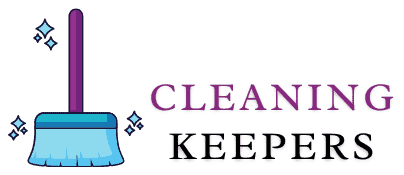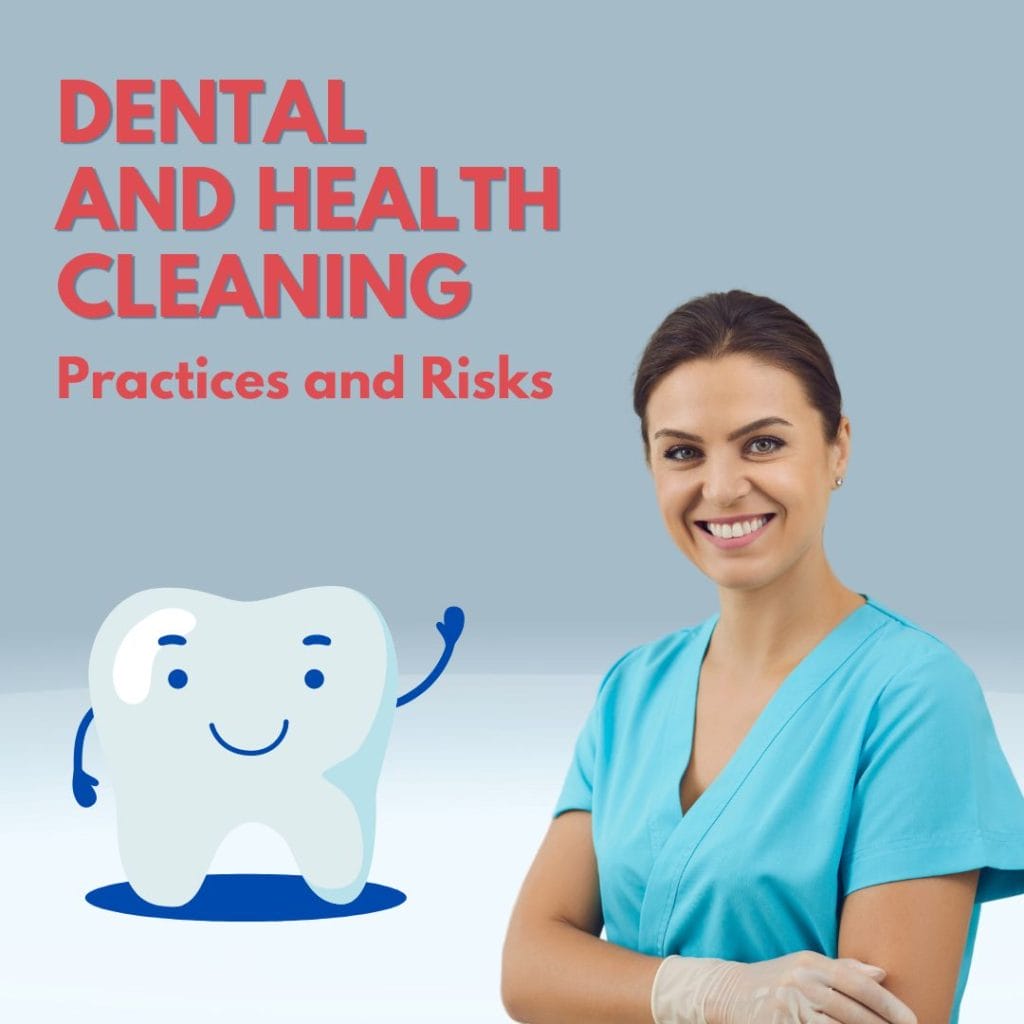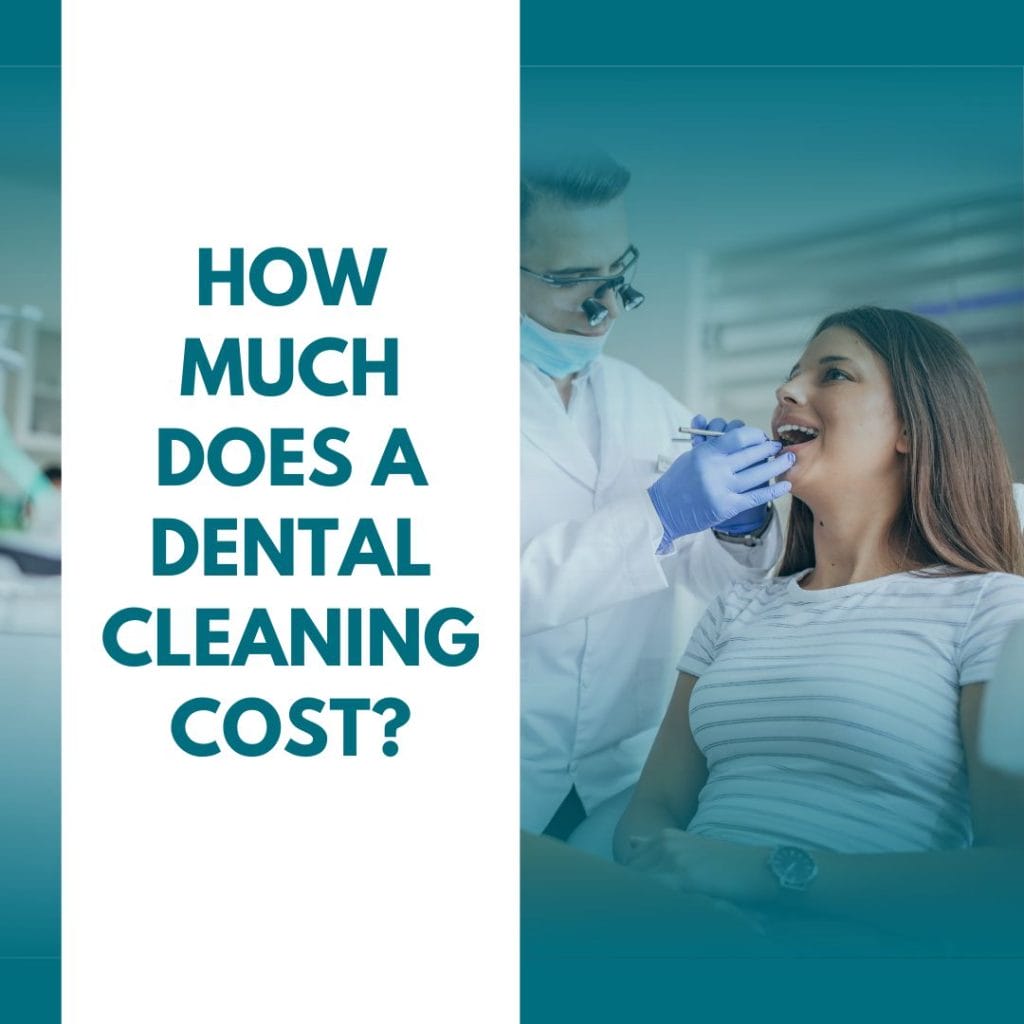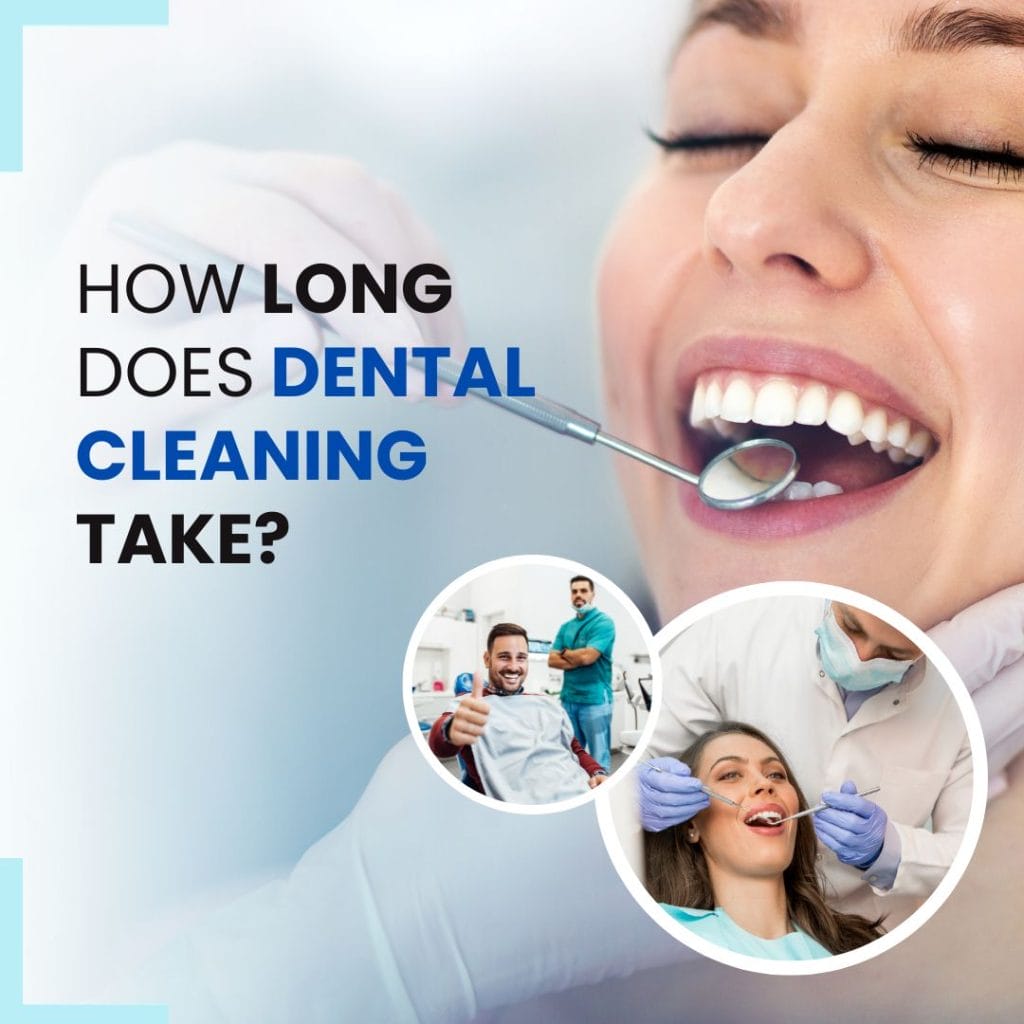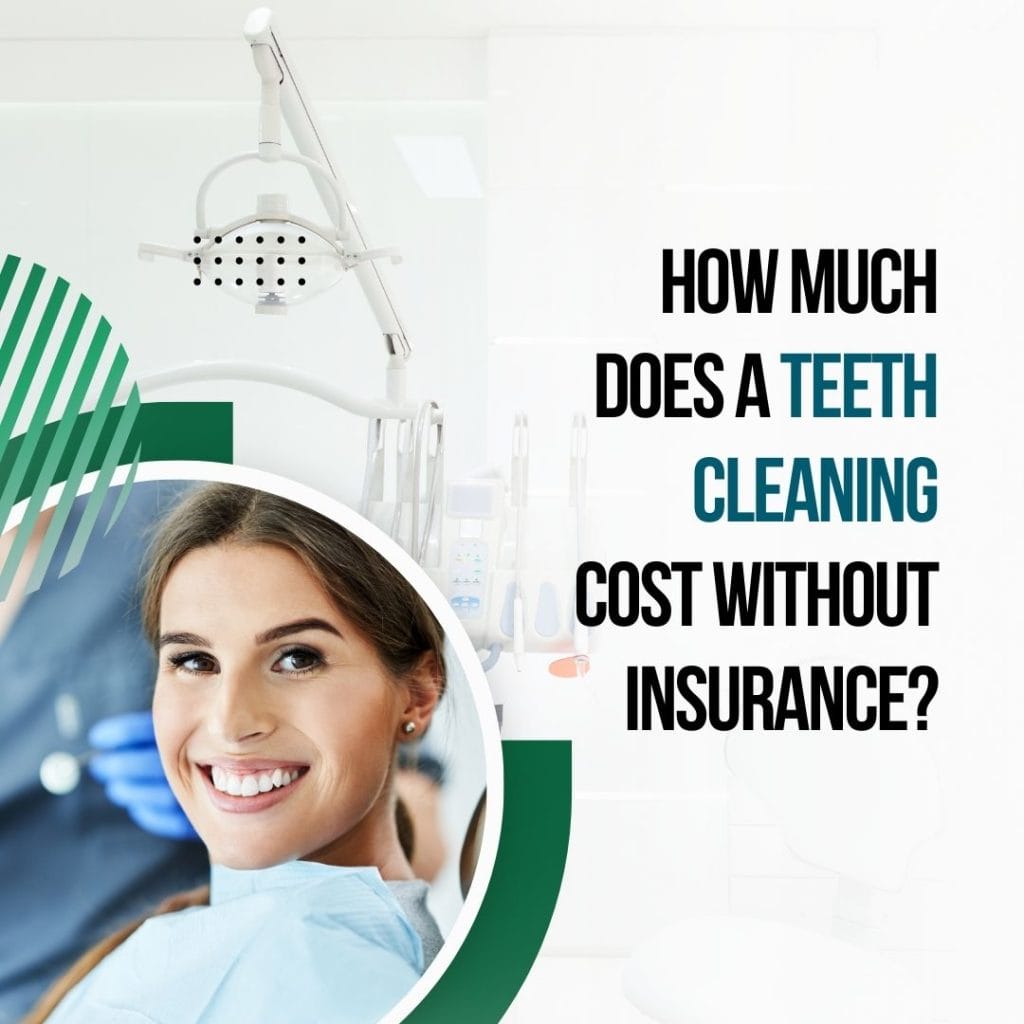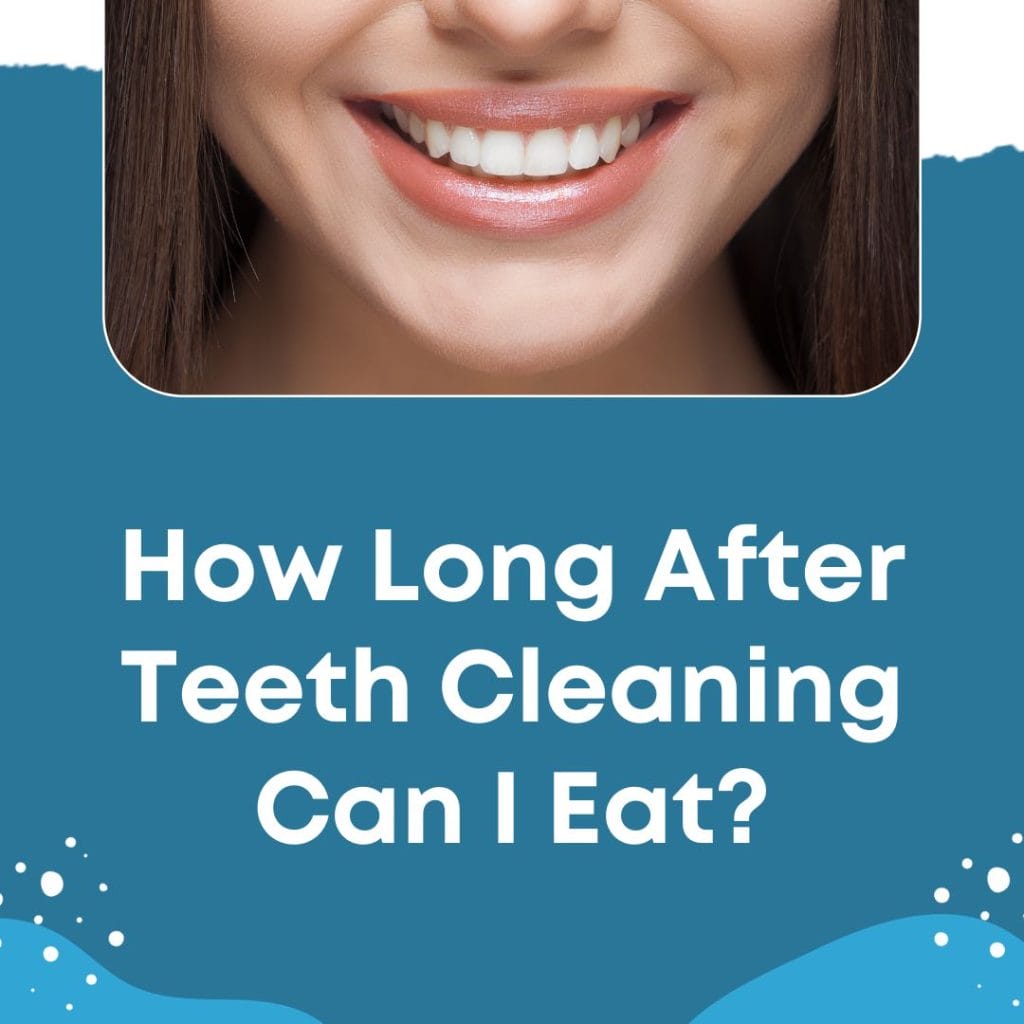Oral hygiene, particularly professional teeth cleanings, is crucial to overall health. As a business owner, you may wonder, “how much is a deep teeth cleaning without insurance?” The importance of these cleanings cannot be overstated. They ensure a bright, confident smile and guard against gum diseases linked to heart conditions and diabetes. While costlier than regular cleaning, a deep teeth cleaning tackles hardened plaque underneath the gum line. Although the cost of insurance can be daunting, ignoring oral health might lead to more expensive treatments in the future. Let’s delve into the nitty-gritty of teeth cleaning costs without insurance.
Understanding the Cost of Teeth Cleaning Without Insurance
The cost of teeth cleaning without insurance varies significantly due to location, the complexity of your oral health issues, and the dental practice’s reputation. Understanding these costs is crucial, especially for small to medium-sized business owners needing comprehensive dental insurance. Let’s explore how much a deep teeth cleaning might cost without insurance.
Present Average Costs from Various Sources
The average cost of regular teeth cleaning without insurance ranges from $75 to $200, according to CostHelper. However, the price can rise significantly for a deep cleaning, which is often required for more complex oral health issues. The American Dental Association reports that a deep cleaning can cost between $140 and $300 per quadrant, making the total cost potentially over $1,000.
Factors Influencing the Cost
Several factors influence the cost of teeth cleaning without insurance. The location plays a key role; dental services are often more expensive in urban areas due to higher overheads. Additionally, dental office policies can significantly affect the price. Some practices offer discounts for returning patients or bundle cleaning with other services, reducing the overall cost. It’s essential to understand these variables when considering how much a deep teeth cleaning might cost without insurance.
Teeth Cleaning Additional Costs
While the base cost of a teeth cleaning is important, it’s equally crucial to consider potential additional costs associated with the procedure. These may include X-rays, treatments, and follow-up appointments that could significantly increase the overall cost of maintaining optimal oral health without insurance.
Detail Potential Extra Charges
Extra charges may apply if excessive plaque or tartar buildup is present, which requires additional time or specialized tools to remove, potentially adding $100-$200 to your bill. Often necessary for a comprehensive oral health evaluation, X-rays can cost another $100-$300. If signs of gum disease are detected, further treatments like root planning could increase the overall cost. Considering these factors is essential when estimating how much a deep teeth cleaning might cost without insurance.
New Patient Examination Costs
A comprehensive examination is often necessary for new patients before a professional cleaning. This thorough assessment, which includes a detailed look at your teeth, gums, and overall oral health, could add anywhere from $50 to $350 to your initial dental visit expenses. It’s a necessary investment to pinpoint potential issues and plan proper treatment, but it certainly adds to the cost of a teeth cleaning procedure without insurance.
Comparing Costs
Understanding the difference in teeth cleaning costs with insurance versus without can provide valuable insight when deciding the best course for managing oral health costs. Let’s take a closer look at how insurance can impact the expenses related to teeth cleaning.
Teeth Cleaning Costs: With vs. Without Insurance
With dental insurance, the cost of teeth cleaning can significantly decrease. Most plans cover two preventive cleanings annually, meaning you could pay little to nothing out-of-pocket. Conversely, without insurance, you’re shouldering the full cost, which, as we’ve discussed, could exceed $1,000 for a deep clean. This stark difference underscores the value of dental insurance in mitigating oral health-related expenses.
Highlight the Benefits of Insurance and Preventive Care
Dental insurance can be a financial lifesaver, often covering some of the costs for procedures beyond cleanings, such as fillings or root canals. This coverage can make the necessary treatments more affordable. Furthermore, preventive care, including the regular cleanings covered by most insurance plans, can help detect issues early, potentially saving significant expense and discomfort. If you’re concerned about discomfort, it’s helpful to understand why a dental cleaning might hurt. Investing in dental insurance and prioritizing preventive care can lead to substantial long-term savings.
Understanding the cost of a dental cleaning with insurance can provide a useful comparison.
Options for Reducing Dental Cleaning Costs
While teeth cleaning costs without insurance can seem high, numerous strategies and resources are available to help manage these expenses. Let’s explore options for reducing dental cleaning costs without compromising oral care quality.
Consider Dental Discount Plans
Dental discount plans are a viable alternative to insurance, offering significant savings on dental procedures, including teeth cleaning. For an annual membership fee, these plans provide discounted rates at participating dentists, often making procedures like deep teeth cleanings more affordable even without insurance. It’s an option worth exploring, especially for business owners seeking to manage oral healthcare costs efficiently.
Negotiating Better Cleaning Rates
Shopping around can also help manage teeth cleaning costs. Different dental practices may offer varying rates for the same procedure. It’s worthwhile to research and compare prices in your area. Furthermore, don’t hesitate to discuss payment plans with your dentist. Many dental offices understand the financial constraints and are willing to negotiate payment options or provide installment plans for more expensive procedures like deep teeth cleaning without insurance.
Value of Regular Teeth Cleaning
Regular teeth cleaning is more than a cosmetic improvement; it invests in overall health and well-being. Let’s delve into the invaluable benefits it provides.
Advantages of Ongoing Dental Care
Regular dental care, including routine teeth cleaning, helps detect dental issues early, preventing potentially expensive treatments. It keeps gum disease, cavities, and tooth loss at bay, saving you hundreds, if not thousands, of dollars in restorative procedures. Besides, a healthy mouth can reduce the risk of serious health complications like heart disease and diabetes, contributing to overall well-being and reducing long-term health-related expenses.
Debunking Teeth Cleaning Myths
A common misconception is that professional teeth cleaning is merely for aesthetics or bad breath. However, these procedures go beyond surface cleaning, targeting plaque buildup and hard-to-reach areas that at-home brushing can’t address. Neglecting professional cleanings can lead to serious dental issues over time, underlining its importance in maintaining oral health.
What to Expect During a Teeth Cleaning Session
If you’re considering professional teeth cleaning without insurance and wonder what the process entails, this section will provide a comprehensive overview of what to expect during a teeth cleaning session, demystifying the procedure and helping you make informed decisions about your oral health. After a teeth cleaning session, many patients are curious how long they should wait before eating.
Describe the Teeth Cleaning Process
A professional teeth cleaning session involves multiple stages.
Firstly, the dentist or dental hygienist will engage in manual scaling, using tools to remove plaque and tartar build-up from your teeth. This process thoroughly eradicates harmful bacteria and debris that can lead to gum disease.
The next stage involves polishing your teeth, using a high-powered electric brush and a special toothpaste. This process helps to smooth and shine your teeth, giving you that fresh and clean feeling.
Lastly, you’ll receive a professional flossing and a fluoride treatment. The flossing ensures any remaining plaque or debris is eradicated, while the fluoride treatment strengthens your teeth and acts as a protective barrier against cavities for months.
Remember that the process might vary slightly depending on the dental office you visit, but these are the basic steps involved.
Additionally, knowing how long dental cleaning takes can help in planning your visit.”
Differentiate Between Regular and Deep Cleaning
Regular teeth cleaning, often performed biannually, removes plaque and tartar from the surface and just below the gumline. It’s a preventive measure to maintain oral health. On the other hand, deep teeth cleaning, or scaling and root planning, is a treatment for advanced gum disease. It extends under the gumline and along the root surface to remove bacteria and smoothen the root, which can be significantly more expensive without insurance.
Conclusion
Understanding dental care costs, particularly “how much is a deep teeth cleaning without insurance,” can empower you to make informed decisions about your oral health. Regular teeth cleanings are crucial for maintaining overall health preventing costly issues down the line, and benefits extend beyond a beautiful smile. While the cost may seem daunting, many alternatives, like dental discount plans and negotiated payment options, can make it affordable. It is highly recommended that every business owner prioritize oral healthcare and explore these cost-effective options, ensuring the best possible dental care without breaking the bank.
For more comprehensive information, our dental health cleaning guide offers valuable insights.
